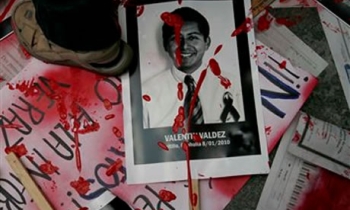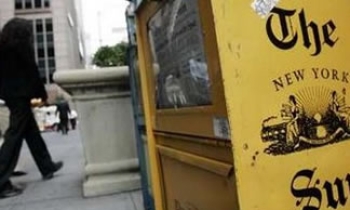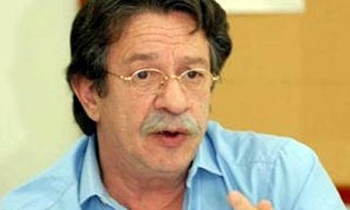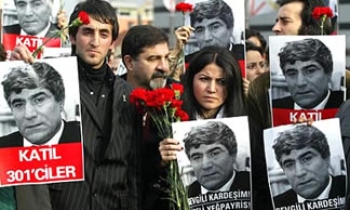Cuban journalist Ricardo González Alfonso has been chosen by Reporters sans Frontières (RSF) as “2008 Journalist of the Year” for helping an independent press to survive in Cuba.
After challenging the state’s monopoly of news and information, González was arrested on March 18, 2003 along with 26 other dissident journalists during the crackdown known as the “Black Spring.” Accused of being “in the pay of the United States” and “undermining Cuba’s independence and territorial integrity,” he was given a 20-year prison sentence. He has been held in Havana’s Combinado del Este prison since late 2004, despite poor health.
The jury awarded the 2008 Media prize to Radio Free NK’s North Korean journalists in order to pay tribute to their courage and determination. Kim Jong-il’s regime has Radio Free NK, North Korean’s first dissident radio station, in its sights. The regime has on several occasions threatened to suspend dialogue with South Korea if this Seoul-based station is not banned. The North Korean journalists who produce Free NK’s programmes are often threatened and the South Korean police have been protecting its manager since a plot to kill him was foiled.
Zarganar and Nay Phone Latt, two Burmese bloggers, were chosen as joint winners in the “Cyber-dissident” category. Dubbed the “Burmese Charlie Chaplin,” comedian Zarganar defended human rights and denounced the military government’s abuses in sketches and entries in the blog he had been keeping since August 2007. Until his arrest in June of this year, he had become a reliable source of information in a country strangled by censorship and repression. A special court in Insein prison sentenced 28-year-old blogger Nay Phone Latt on November 10, 2008 to 20 years and six months in prison on a charge of violating the Electronic Act, which provides for severe penalties for those who use the Internet to criticise the government.
Since its creation, the RSF - Fondation de France Prize has been awarded to: Zlatko Dizdarevic (Bosnia and Herzegovina - 1992), Wang Juntao (China - 1993), André Sibomana (Rwanda - 1994), Christina Anyanwu (Nigeria - 1995), Isik Yurtçu (Turkey - 1996), Raúl Rivero (Cuba - 1997), Nizar Nayyouf (Syria - 1998), San San Nweh (Burma - 1999), Carmen Gurruchaga (Spain - 2000), Reza Alijani (Iran - 2001), Grigory Pasko (Russia - 2002), Ali Lmrabet (Morocco - 2003), Hafnaoui Ghoul (Algeria - 2004), Zhao Yan (China - 2005), U Win Tin (Burma - 2006) and Seyoum Tsehaye (Eritrea - 2007).
Several winners were released from prison just weeks or months after being awarded the prize. They include Moroccan journalist Ali Lmrabet, who was awarded the prize on December 10, 2003 and freed on January 7, 2004, and Russian journalist Grigory Pasko, awarded the prize in December 2002 and freed in January 2003. Massoud Hamid of Syria, winner of the 2005 prize in the “cyber-dissident category,” was released in July 2006. U Win Tin, the 2007 laureate, was released in September 2008 after 19 years in prison.
The winners of the RSF Prize are chosen by an international jury.









